-
-
- Financial Aid
- Financial Aid
- Scholarships
- Loans
- Grants
- Federal Work Study
- Additional Resources
-
A study of the historical, philosophical, and sociological foundations of education. The organization, role, and funding of the public school (K-12) in a multicultural society are examined. Topics include court cases related to education, INTASC principles, concepts of teaching, lesson planning, educational technology, and educational ethics. The course also includes an introduction to candidate portfolio.
20–24 hours of classroom observation
Introduction to Teaching: Becoming a Professional, 7th Edition

The study and application of learning theories, psychological concepts, and principles to the teaching-learning process. Cognitive, affective, and psychomotor aspects of the teaching-learning process are considered. Other topics included are statistics, tests and measurement, teaching models, principles of assessment, lesson planning, issues related to diverse student populations, motivation, and classroom management.
8–10 hours of student tutoring

This course is designed to prepare the teacher for the challenge of meeting the needs of diverse student populations in the regular classroom. Various topics included are diverse student populations, mainstreaming and inclusion, federal and state special education laws, identification of exceptional children, their characteristics and special needs, delivery of services, instructional methods and techniques, and evaluation.
TTT 510 & TTT 520
Teacher interview
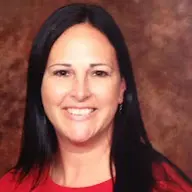
A content-methods course for elementary teacher preparation which is a study of number systems, operations, geometry, measurement, data analysis/probability, and state accountability requirements in math (NCLB). There is a special reference to teaching materials, laboratory methods, and pedagogy, including classroom use of manipulatives and technology.
TTT 510 & TTT 520
4–5 hours of observation and teaching of math lessons
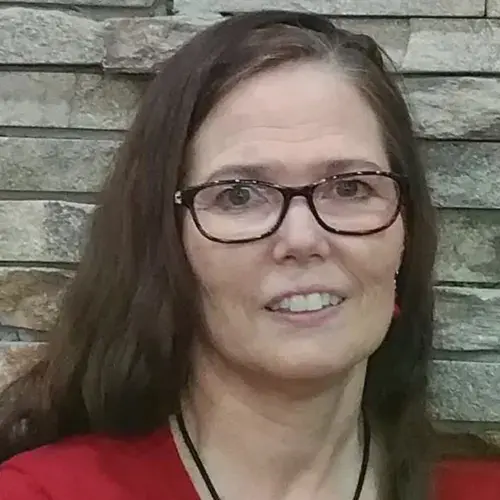
This course is designed to assist candidates preparing for the elementary classroom in developing practical skills and techniques for organizing the classroom and maintaining effective discipline. Candidates develop a plan for discipline and classroom management which utilizes a proactive approach based on positive ethical practices consistent with Christian and democratic principles. Several widely accepted discipline theories along with the study of legal implications for teachers are used in conjunction with observations and case studies to assist candidates in developing effective discipline plans.
TTT 510 & TTT 520
3 hours of observation

This course focuses upon the teaching and assessment of literacy in the early elementary classroom. Topics incorporate techniques and methods for the instruction and assessment of the five essential components of reading: phonemic awareness, phonics, vocabulary, fluency, and comprehension. Spelling and writing instruction are embedded. Course includes diagnostic and progress monitoring and the analysis of assessment data. It includes instruction on the components of scientifically based reading interventions that are direct, explicit, and multi-sensory. Includes a field experience component.
12 hours of observation and teaching of literacy lessons
Teaching Reading Sourcebook, 3rd Edition
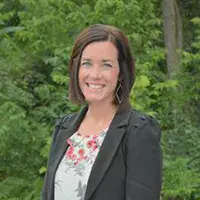
This course focuses upon the teaching and assessment of literacy in the middle childhood classroom to improve reading and writing outcomes for all students. It includes instruction on the components of scientifically based reading interventions that are direct, explicit, and multi-sensory. Topics include fluency, vocabulary, comprehension, writing, and spelling within appropriate texts. Includes a field experience component.
TTT 510 & TTT 520
8-10 hours of student tutoring and teaching of literacy lessons
Teaching Reading Sourcebook, 3rd Edition

An integrative approach of utilizing a variety of effective instructional methods and resources with content areas appropriate for elementary children. Strategies for working with diverse student populations and incorporating current technology are included. Topics include development of thematic units, implementation of various instructional strategies, lesson planning, and integration of elementary subject areas.
TTT 510 & TTT 520
1 hour of volunteering with students
Teaching a lesson from thematic unit
The Wild Card: 7 Steps to an Educator Creative Breakthrough by Hope and Wade King
*No online component required

Student teaching is a ten week full-time teaching experience under the supervision of public and/or private school and college personnel. Candidates will create lesson plans/units and gain experience using appropriate assessment and discipline strategies. A portfolio is required to obtain credit. A student teaching application (Elementary, Secondary, P-12, Mild, TESOL) should be submitted a full semester before the anticipated start date of the student teaching experience. All courses in the TTT program are to be successfully completed before candidates can be approved for student teaching.
10 weeks of full-time student teaching

A study of the historical, philosophical, and sociological foundations of education. The organization, role, and funding of the public school (K-12) in a multicultural society are examined. Topics include court cases related to education, INTASC principles, concepts of teaching, lesson planning, educational technology, and educational ethics. The course also includes an introduction to candidate portfolio.
20–24 hours of classroom observation
Introduction to Teaching: Becoming a Professional, 7th Edition

The study and application of learning theories, psychological concepts, and principles to the teaching-learning process. Cognitive, affective, and psychomotor aspects of the teaching-learning process are considered. Other topics included are statistics, tests and measurement, teaching models, principles of assessment, lesson planning, issues related to diverse student populations, motivation, and classroom management.
8–10 hours of student tutoring

This course is designed to prepare the teacher for the challenge of meeting the needs of diverse student populations in the regular classroom. Various topics included are diverse student populations, mainstreaming and inclusion, federal and state special education laws, identification of exceptional children, their characteristics and special needs, delivery of services, instructional methods and techniques, and evaluation.
TTT 510 & TTT 520
Teacher interview

This course is designed to provide practical procedures for developing effective literacy skills at the junior high, middle, and secondary school levels. Focuses on understanding the relationships between the processes of literacy and the learning of content. Strategies on how to meet the total range of student literacy needs in the classroom are addressed to increase student competency. Methods and materials to enhance advanced comprehension and study skills of adolescents in a diverse society are presented. Includes a field experience component.
TTT 510 & TTT 520
Teach and evaluate a literacy lesson within your content area (3 hours)
Improving Adolescent Literacy: Content Area Strategies at Work, 5th edition

This course is designed to assist candidates preparing for the secondary or P-12 classroom in developing practical skills and techniques for organizing the classroom and maintaining effective discipline. Candidates develop a plan for discipline and classroom management which utilizes a proactive approach based on positive ethical practices consistent with Christian and democratic principles. Several widely accepted discipline theories along with the study of legal implications for teachers are used in conjunction with observations and case studies to assist candidates in developing effective discipline plans.
TTT 510 & TTT 520
Observe and assess classroom management practices in your content area (3 hours)
*No online component required.

This course is designed for secondary education/P-12 candidates in the Transition to Teaching program. All aspects of planning, current effective teaching strategies, and evaluation of individual progress utilizing both traditional and non-traditional assessments are discussed. Aspects of adolescent literacy are included. Content specific assignments are included.
TTT 510 & TTT 520
12–15 hours of observation and teaching of two lessons
Teaching in the Middle and Secondary Schools, 11th Edition
*eText required

Student teaching is a ten week full-time teaching experience under the supervision of public and/or private school and college personnel. Candidates will create lesson plans/units and gain experience using appropriate assessment and discipline strategies. A portfolio is required to obtain credit. A student teaching application (Elementary, Secondary, P-12, Mild, TESOL) should be submitted a full semester before the anticipated start date of the student teaching experience. All courses in the TTT program are to be successfully completed before candidates can be approved for student teaching.
10 weeks of full-time student teaching

A study of the historical, philosophical, and sociological foundations of education. The organization, role, and funding of the public school (K-12) in a multicultural society are examined. Topics include court cases related to education, INTASC principles, concepts of teaching, lesson planning, educational technology, and educational ethics. The course also includes an introduction to candidate portfolio.
20–24 hours of classroom observation
Introduction to Teaching: Becoming a Professional, 7th Edition

The study and application of learning theories, psychological concepts, and principles to the teaching-learning process. Cognitive, affective, and psychomotor aspects of the teaching-learning process are considered. Other topics included are statistics, tests and measurement, teaching models, principles of assessment, lesson planning, issues related to diverse student populations, motivation, and classroom management.
8–10 hours of student tutoring

This course is designed to prepare the teacher for the challenge of meeting the needs of diverse student populations in the regular classroom. Various topics included are diverse student populations, mainstreaming and inclusion, federal and state special education laws, identification of exceptional children, their characteristics and special needs, delivery of services, instructional methods and techniques, and evaluation.
TTT 510 & TTT 520
Teacher interview

This course is designed to provide practical procedures for developing effective literacy skills at the junior high, middle, and secondary school levels. Focuses on understanding the relationships between the processes of literacy and the learning of content. Strategies on how to meet the total range of student literacy needs in the classroom are addressed to increase student competency. Methods and materials to enhance advanced comprehension and study skills of adolescents in a diverse society are presented. Includes a field experience component.
TTT 510 & TTT 520
Improving Adolescent Literacy: Content Area Strategies at Work, 5th edition

This course is designed to assist candidates preparing for the elementary classroom in developing practical skills and techniques for organizing the classroom and maintaining effective discipline. Candidates develop a plan for discipline and classroom management which utilizes a proactive approach based on positive ethical practices consistent with Christian and democratic principles. Several widely accepted discipline theories along with the study of legal implications for teachers are used in conjunction with observations and case studies to assist candidates in developing effective discipline plans.
TTT 510 & TTT 520
3 hours of observation

This course is designed to assist candidates preparing for the secondary or P-12 classroom in developing practical skills and techniques for organizing the classroom and maintaining effective discipline. Candidates develop a plan for discipline and classroom management which utilizes a proactive approach based on positive ethical practices consistent with Christian and democratic principles. Several widely accepted discipline theories along with the study of legal implications for teachers are used in conjunction with observations and case studies to assist candidates in developing effective discipline plans.
TTT 510 & TTT 520
Observe and assess classroom management practices in your content area (3 hours)
Building Classroom Management: Methods and Models, 12th edition
*No online component required.

This course is designed for secondary education/P-12 candidates in the Transition to Teaching program. All aspects of planning, current effective teaching strategies, and evaluation of individual progress utilizing both traditional and non-traditional assessments are discussed. Aspects of adolescent literacy are included. Content specific assignments are included.
TTT 510 & TTT 520
12–15 hours of observation and teaching of two lessons
Teaching in the Middle and Secondary Schools, 11th Edition
*eText required

This course focuses upon the teaching and assessment of literacy in the early elementary classroom. Topics incorporate techniques and methods for the instruction and assessment of the five essential components of reading: phonemic awareness, phonics, vocabulary, fluency, and comprehension. Spelling and writing instruction are embedded. Course includes diagnostic and progress monitoring and the analysis of assessment data. It includes instruction on the components of scientifically based reading interventions that are direct, explicit, and multi-sensory. Includes a field experience component.
12 hours of observation and teaching of literacy lessons
Teaching Reading Sourcebook, 3rd Edition

An integrative approach of utilizing a variety of effective instructional methods and resources with content areas appropriate for elementary children. Strategies for working with diverse student populations and incorporating current technology are included. Topics include development of thematic units, implementation of various instructional strategies, lesson planning, and integration of elementary subject areas.
TTT 510 & TTT 520
1 hour of volunteering with students
The Wild Card: 7 Steps to an Educator Creative Breakthrough by Hope and Wade King
*No online component required

Student teaching is a ten week full-time teaching experience under the supervision of public and/or private school and college personnel. Candidates will create lesson plans/units and gain experience using appropriate assessment and discipline strategies. A portfolio is required to obtain credit. A student teaching application (Elementary, Secondary, P-12, Mild, TESOL) should be submitted a full semester before the anticipated start date of the student teaching experience. All courses in the TTT program are to be successfully completed before candidates can be approved for student teaching.
10 weeks of full-time student teaching

This course studies the historical, philosophical, and sociological foundations of education and prepares teachers to apply knowledge and skills to meet the diverse needs of students with exceptionalities. Candidates will be empowered to discern the various abilities of students with mild to moderate characteristics. Topics include concepts of teaching, lesson planning, mainstreaming, and inclusion through the lens of InTASC, state, and professional organizational principles. This course includes field experience.
20 hours of observation
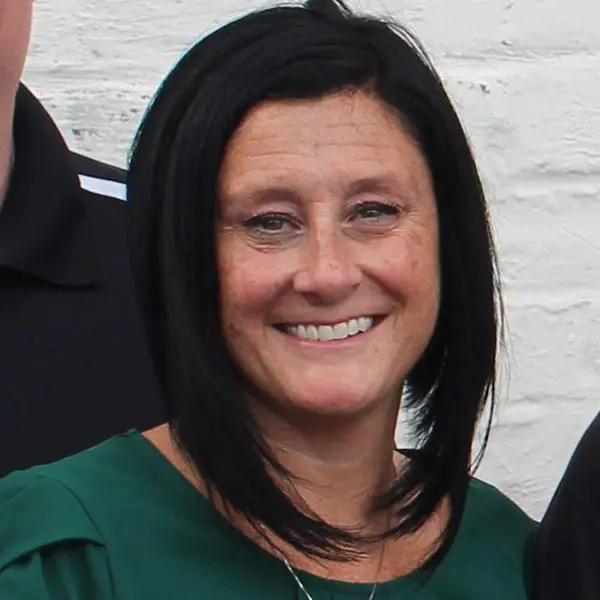
The study and application of learning theories, psychological concepts, and principles to the teaching-learning process. Cognitive, affective, and psychomotor aspects of the teaching-learning process are considered. Other topics included are statistics, tests and measurement, teaching models, principles of assessment, lesson planning, issues related to diverse student populations, motivation, and classroom management.
8–10 hours of student tutoring

This course is an overview of the history and development of laws which mandate the provision of special education and related services to students with disabilities. The purpose of this course is to empower the prospective teacher of special education through the development of the knowledge of the legal foundation of special education. Students will gain an understanding of the legal issues surrounding the rights and provision of special education services to students with disabilities in public schools. This course will provide students with information about legal issues in special education with an emphasis on implementing legally sound policies and procedures in their own practice.
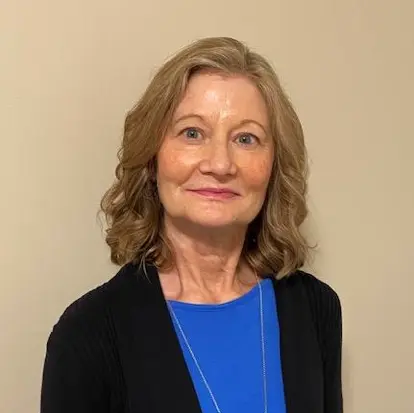
This course focuses upon the teaching and assessment of literacy in the early elementary classroom. Topics incorporate techniques and methods for the instruction and assessment of the five essential components of reading: phonemic awareness, phonics, vocabulary, fluency, and comprehension. Spelling and writing instruction are embedded. Course includes diagnostic and progress monitoring and the analysis of assessment data. It includes instruction on the components of scientifically based reading interventions that are direct, explicit, and multi-sensory. Includes a field experience component.
12 hours of observation and teaching of literacy lessons
Teaching Reading Sourcebook, 3rd Edition

This course focuses on formal and informal assessment used to identify, plan for, and teach students with exceptional needs, including the use of that information to develop individual education plans. Communication of that information with students, parents, and other personnel is discussed. This course has a lab experience.
10 hours of observation over a minimum of 4 weeks

Managing the learning environment of students with special needs is the focus of this course. Topics covered include behavioral assessments and their use in developing intervention plans for exceptional students, as well as the legal implications of laws and regulations regarding the implementation of these plans in various learning environments. Characteristics and observations of behavior disorders are also explored. An observation of a classroom with disruptive behaviors is required as well as service learning projects.
10 hours of observation over a minimum of 4 weeks

Methods and materials used in the intervention of exceptional learners are presented in this course. Strategies of instruction in the least restrictive environment, modification of curriculum, and collaboration and consultation across the spectrum of services are presented in conjunction with the daily teaching and planning required of students’ individual education plans. Includes a field experience lab.
10 hours of observation over a minimum of 4 weeks
Strategies for Teaching Students with Learning and Behavior Disabilities, 11th Edition

Student teaching is a ten week full-time teaching experience under the supervision of public and/or private school and college personnel. Candidates will create lesson plans/units and gain experience using appropriate assessment and discipline strategies. A portfolio is required to obtain credit. A student teaching application (Elementary, Secondary, P-12, Mild, TESOL) should be submitted a full semester before the anticipated start date of the student teaching experience. All courses in the TTT program are to be successfully completed before candidates can be approved for student teaching.
10 weeks of full-time student teaching

A study of the historical, philosophical, and sociological foundations of education. The organization, role, and funding of the public school (K-12) in a multicultural society are examined. Topics include court cases related to education, INTASC principles, concepts of teaching, lesson planning, educational technology, and educational ethics. The course also includes an introduction to candidate portfolio.
20–24 hours of classroom observation
Introduction to Teaching: Becoming a Professional, 7th Edition

The study and application of learning theories, psychological concepts, and principles to the teaching-learning process. Cognitive, affective, and psychomotor aspects of the teaching-learning process are considered. Other topics included are statistics, tests and measurement, teaching models, principles of assessment, lesson planning, issues related to diverse student populations, motivation, and classroom management.
8–10 hours of student tutoring

This course discusses the role of the English language in the contemporary world and how language and culture shape human interactions. It provides an introductory understanding of the field of second language acquisition, from the perspective of both learning and teaching a new language. It also explores the teaching of English in ministry in US and international contexts.
5 hours of cross-cultural interaction

This course focuses upon the teaching and assessment of literacy in the early elementary classroom. Topics incorporate techniques and methods for the instruction and assessment of the five essential components of reading: phonemic awareness, phonics, vocabulary, fluency, and comprehension. Spelling and writing instruction are embedded. Course includes diagnostic and progress monitoring and the analysis of assessment data. It includes instruction on the components of scientifically based reading interventions that are direct, explicit, and multi-sensory. Includes a field experience component.
12 hours of observation and teaching of literacy lessons
Teaching Reading Sourcebook, 3rd Edition

This course develops understanding and skill in classroom instruction of English learners, including lesson planning, teaching, and assessment. Topics covered include teaching methods and techniques for all aspects of English language development, educational technology, curricular planning, and formative assessment.
10 hours of observation and 10 hours of teaching

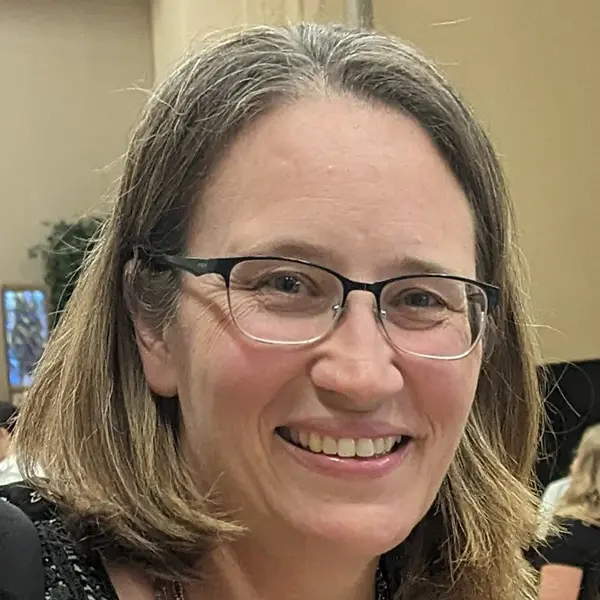
Introduces applied linguistics and its practical implications in language teaching. Provides study of English grammar, and how English structures are taught and explained to English learners.


Intended for future US public school ESOL professionals, this course addresses English language learners (ELLs) in P-12 classrooms. Investigates TESOL-related legislation and its effect on schools, students, and teachers, as well as types of ESOL programs used in US schools and their effectiveness. Studies effective advocacy, strategies for collaboration with families and non-ESOL colleagues and paraprofessionals, and helpful resources and services.

Student teaching is a ten week full-time teaching experience under the supervision of public and/or private school and college personnel. Candidates will create lesson plans/units and gain experience using appropriate assessment and discipline strategies. A portfolio is required to obtain credit. A student teaching application (Elementary, Secondary, P-12, Mild, TESOL)) should be submitted a full semester before the anticipated start date of the student teaching experience. All courses in the TTT program are to be successfully completed before candidates can be approved for student teaching.
10 weeks of full-time student teaching

This course is designed to prepare the teacher for the challenge of meeting the needs of diverse student populations in the regular classroom. Various topics included are diverse student populations, mainstreaming and inclusion, federal and state special education laws, identification of exceptional children, their characteristics and special needs, delivery of services, instructional methods and techniques, and evaluation.
Teacher interview

This course is an overview of the history and development of laws which mandate the provision of special education and related services to students with disabilities. The purpose of this course is to empower the prospective teacher of special education through the development of the knowledge of the legal foundation of special education. Students will gain an understanding of the legal issues surrounding the rights and provision of special education services to students with disabilities in public schools. This course will provide students with information about legal issues in special education with an emphasis on implementing legally sound policies and procedures in their own practice.

This course focuses upon the teaching and assessment of literacy in the early elementary classroom. Topics incorporate techniques and methods for the instruction and assessment of the five essential components of reading: phonemic awareness, phonics, vocabulary, fluency, and comprehension. Spelling and writing instruction are embedded. Course includes diagnostic and progress monitoring and the analysis of assessment data. It includes instruction on the components of scientifically based reading interventions that are direct, explicit, and multi-sensory. Includes a field experience component.
12 hours of observation and teaching of literacy lessons
Teaching Reading Sourcebook, 3rd Edition

This course focuses on formal and informal assessment used to identify, plan for, and teach students with exceptional needs, including the use of that information to develop individual education plans. Communication of that information with students, parents, and other personnel is discussed. This course has a lab experience.
10 hours of observation over a minimum of 4 weeks

Managing the learning environment of students with special needs is the focus of this course. Topics covered include behavioral assessments and their use in developing intervention plans for exceptional students, as well as the legal implications of laws and regulations regarding the implementation of these plans in various learning environments. Characteristics and observations of behavior disorders are also explored. An observation of a classroom with disruptive behaviors is required as well as service learning projects.
10 hours of observation over a minimum of 4 weeks

Methods and materials used in the intervention of exceptional learners are presented in this course. Strategies of instruction in the least restrictive environment, modification of curriculum, and collaboration and consultation across the spectrum of services are presented in conjunction with the daily teaching and planning required of students’ individual education plans. Includes a field experience lab.
10 hours of observation over a minimum of 4 weeks

This course is designed for candidates to operationalize knowledge of the curriculum principles to design systematic instruction for individuals with intense disabilities. The focus is on research-based strategies for promoting academic and social-emotional success. Historical and legal aspects will inform instruction to meet students’ current learning needs as well as preparation for adulthood. Candidates will relate characteristics and etiological backgrounds of preschool children through adolescence with intense disabilities to assess and design individualized and effective instruction. The roles and types of technologies in the teaching and learning process will be included. This course includes a field experience teaching students with intense disabilities.
25 hours observation over minimum of 4 weeks

This course provides candidates with the skills to evaluate and design effective individualized programs based upon instructional needs related to independence and self-determination for students with intense disabilities. An informed decision-making process based upon student, family, and diagnostic procedures are the focus. Theories and principles related to the skills for independence and self-determination are applied to design individualized programs to address daily living, job and community, and self-management of behaviors for students. This course includes a field experience teaching students with intense disabilities.
25 hours observation over minimum of 4 weeks

The course focuses on the application of effective strategies of communication and collaboration for promoting the success of children and adolescents with intense disabilities. The consultative and collaborative skills and roles of special education teachers will be applied to advance the learning experiences and outcomes for students. Content includes current issues and trends related to various programs, and services. Culturally competent services, parent involvement, and the role of students with intense disabilities are addressed. This course includes a field experience teaching students with intense disabilities.
25 hours observation over minimum of 4 weeks

This course discusses the role of the English language in the contemporary world and how language and culture shape human interactions. It provides an introductory understanding of the field of second language acquisition, from the perspective of both learning and teaching a new language. It also explores the teaching of English in ministry in US and international contexts.
5 hours of cross-cultural interaction

This course develops understanding and skill in classroom instruction of English learners, including lesson planning, teaching, and assessment. Topics covered include teaching methods and techniques for all aspects of English language development, educational technology, curricular planning, and formative assessment.
10 hours of observation and 10 hours of teaching


Introduces applied linguistics and its practical implications in language teaching. Provides study of English grammar, and how English structures are taught and explained to English learners.


Intended for future US public school ESOL professionals, this course addresses English language learners (ELLs) in P-12 classrooms. Investigates TESOL-related legislation and its effect on schools, students, and teachers, as well as types of ESOL programs used in US schools and their effectiveness. Studies effective advocacy, strategies for collaboration with families and non-ESOL colleagues and paraprofessionals, and helpful resources and services.

This course is comprised of a supervised ESOL field experience totaling a minimum of 40 hours, plus accompanying seminar sessions focused on reflection, development of teaching skill, and TESOL professionalization.
20 hours of observation and 20 hours of teaching

Contact
Lyn Kline
Graduate Enrollment Counselor
765-998-4878
email